Where it all began
What started as passionate young adults looking to make a difference has turned into an empowering force of changemakers.
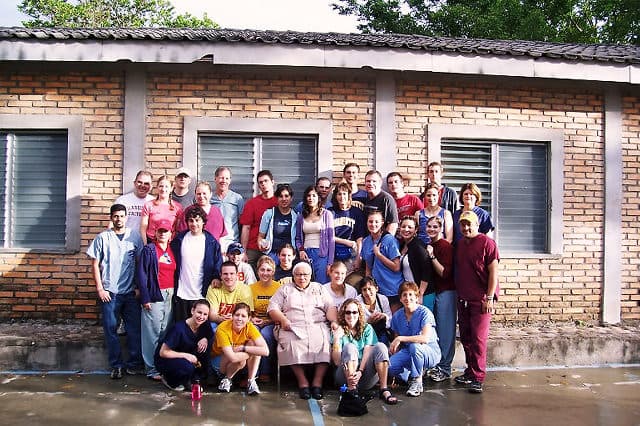
A Student-Movement
Co-Founders Duffy Casey and Shital Chauhan led a group of doctors and Marquette University students to provide medical care to rural communities in Honduras in partnership with Sor María Rosa Leggol and local Honduran organization, Sociedad Amigos de los Ninos (SAN). Inspired to perpetuate the mission, Duffy and Shital formalized a US nonprofit called Global Medical Relief, with the support of Arman Nadershahi, Liran Amir and Jeff Bodle.
Passion
Duffy moved to Honduras to live full-time and create a formal operation to continue medical relief work with fellow co-founder, local Honduran, Gerardo Enrique “Quique” Rodriguez. The two began forging community partnerships by conducting more than 50 needs assessments and created the basis for our medical brigades model.
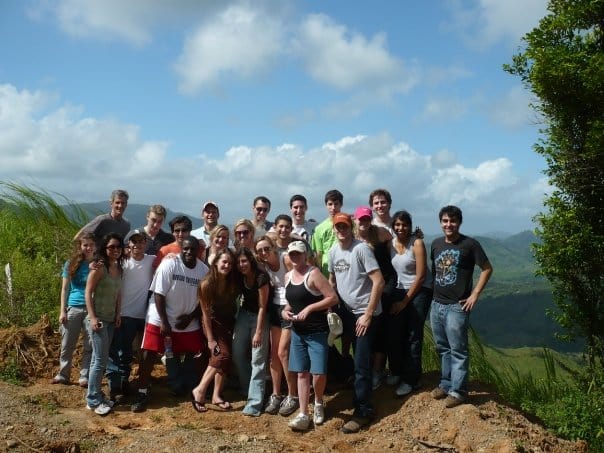
Strategy
Another Co-Founder, Steven Atamian, was brought in to build the organizational structure and expand into more universities. By the end of 2005, the organization went from one university to 5 campuses including USC, University of Michigan, and UCLA.
Chapter Expansion
With the help of Don Osborne, a highly recognized graduate school advisor, the organization grew to 15 chapters and a new advising structure was created to support student leaders with the leadership of Kathy Stolarz.
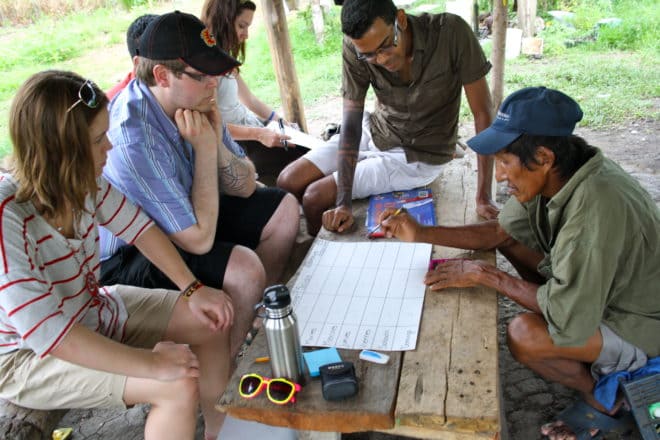
Economic Development
Global Brigades was reformed in the US, disbanding the old nonprofit and starting a new one that focused on holistic programming. Co-Founder Catherine Berman with significant contributions from Eric Magallon, Thomas Sigler, Andri Wienandts and UCLA GBB, developed our first Business Brigades program to improve family income while Orion Haas developed Water Brigades to address water quality and access in our partner communities.
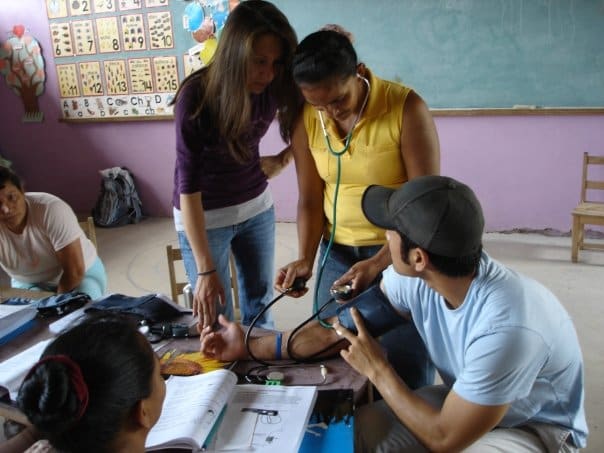
Program Expansion
Program Expansion. Global Brigades continued expanding into new brigade types to address community needs such as Public Health (special thanks to Joy Bitner, Lauren Linsell and Teresa Taverno), Human Rights (thank you Desire Omli and Vanessa Lopez), Microfinance (thank you Merilee Chapin), Architecture (thank you John Cunningham), and Environmental (thank you Sophia Hatz). The Medical program added a new Community Health Worker component to move toward sustainability (thank you John Le, Hiral Patel and Daisy Leon-Martinez). Additionally, the first international expansion occurred into Canada as a source of new chapters (special thanks to Gillian Gibson and Laura stymiest) and a new program country was added in Panama (thank you Pablo Garon, Thomas Sigler and Terica Kindred).
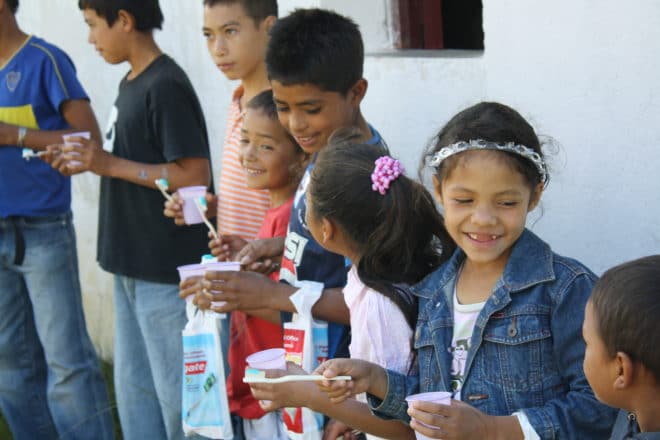
Staffing Up
Global Brigades hired their first U.S. employees to manage administrative functions and support program development of the charity. While in Europe, GB was started in the UK by founding board members, Angelo Passalacqua, Sandra Sadoo, Eric Heymann and Rebecca Uva. From a program side, Dental Brigades was formed and a shift to centralize programs into singular regions was established, providing more holistic and robust services for communities.

Systematizing
To keep up with chapter growth, Global Brigades turned to technology and created Empowered.org to unite all chapters on a single registration and fundraising platform (special thanks Oisin O’connor, Chris Ueland and Rod Atamian). Global Brigades continued to expand into Europe with charities formed in Switzerland, Germany and Ireland (thank you Sean Walsh, Emma Slattery, Andri WSienandts adn Ingrid Wildemann). From a programming side, Orion Haas and Allen Gula led an expedition across 20 African countries doing field research and conducting interviews to identify a country for the fieldwork. Concurrently, Angelo Passalacqua, PhD and GB UK Board Member, conducted an independent quantitative study; both studies pointed to Ghana!
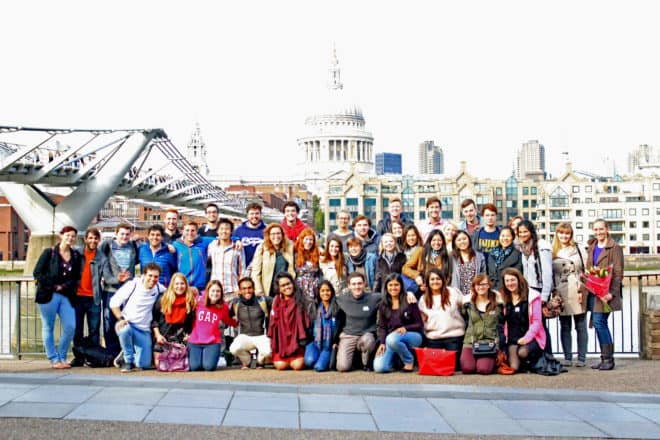
Collaboration
Since all these international entities were created, it was decided to organize them all under one committee, so Global Brigades Association was formed with one representative from each country meeting regularly to discuss programming and long term strategy. One of the first decisions was to halt any new programs and to apply significant focus on the existing holistic model with just health and sustainable development work. Mirroring the holistic programming in community, a new position on universities was formed called the Campus Chairperson to build collaboration between chapters at their school and vote on high level decisions for the organization. Further perpetuating a culture of student empowerment.
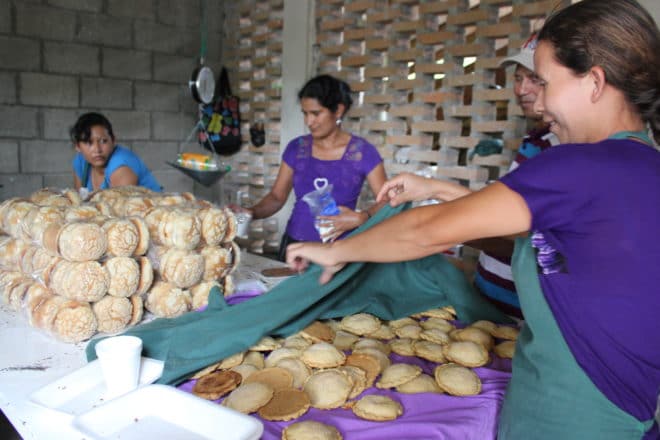
Innovation
After nearly a decade working with those very first community partners, a plan was developed to ‘sustainably transition.’ These “transitions” would occur once the community had access to clean drinking water, a capitalized caja, access to community health workers year-round, in-home public health infrastructure and local leadership to perpetuate the projects into the future with minimal follow-up for GB. What was a dream at the time, became the cornerstone approach for our programming moving forward and the launch of the Empowered 100 initiative which is currently working to achieve these goals in 100 communities over the next 5 years which is one of the most comprehensive and largest poverty alleviation strategy ever developed.
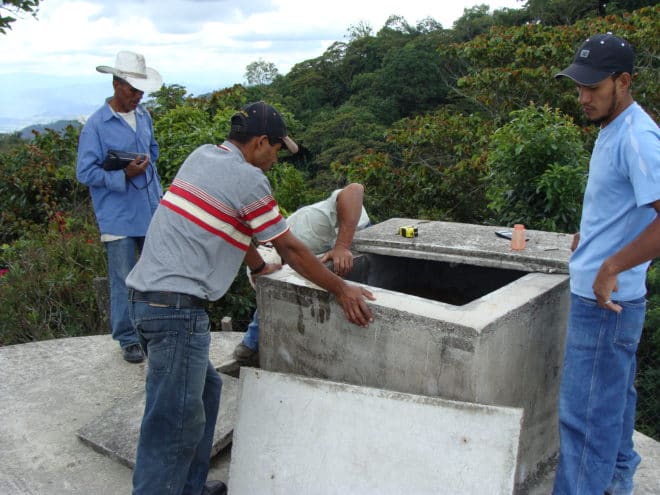
Sustainability
Within one year of the launch of the Sustainable transition model, Global Brigades completed its first community transition with El Zurzular, Honduras. Cornerstone to the success of this model was the hiring strategy switch to more local and skilled team members to take ownership of programming. Meanwhile, in North America, the regional conference initiative began to take shape with university leaders planning local meet-ups to engage their peers in topics around global health and sustainable development.
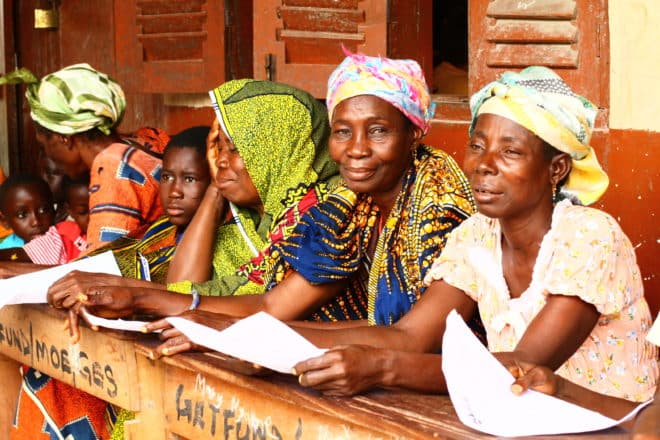
Adaptation
In the wake of the ebola crisis, Global Brigades suspended all groups going to Ghana and developed a new model through public/private partnerships. Through a collaboration with the Ghanaian Ministry of Health, Ghana Water Company and Ekumfi Rural Bank, Global Brigades continued programming that impacted more than 3,000 community members without a single volunteer. The ebola tragedy positively shaped Global Brigades’ future programming models to be more open to collaboration and find efficiency with local partners to complement aspects of the holistic model. Notably during this period, videographer Luke Namer produced some of the highest quality videos for Global Brigades that celebrated the empowerment of local communities and the passion of the on-the-ground teams.
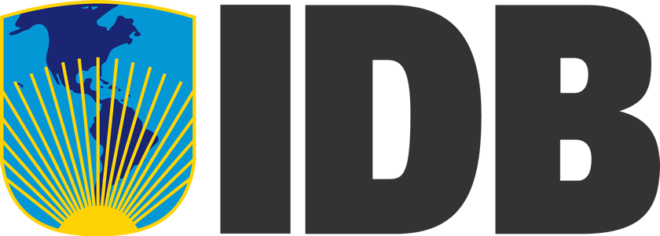
Validation
The Inter-American Development Bank granted Global Brigades a $1 million grant to scale its microfinance and public health programming (special thanks to Adam Drolet, Lorelei Goodyear and Tim Elliott from PATH). The grant expands GB beyond a student-led volunteer organizations to a recognized health and development organization. Not counting on institutional grants, Global Brigades also launched its first social enterprise, Cafe Holistico, in partnership with coffee growing communities in Central America with the goal to double and triple farmer income while producing gourmet coffee for students to fundraise with (thank you Jim Sartori, Kate Burgess, John Miller, and Charles Ries)
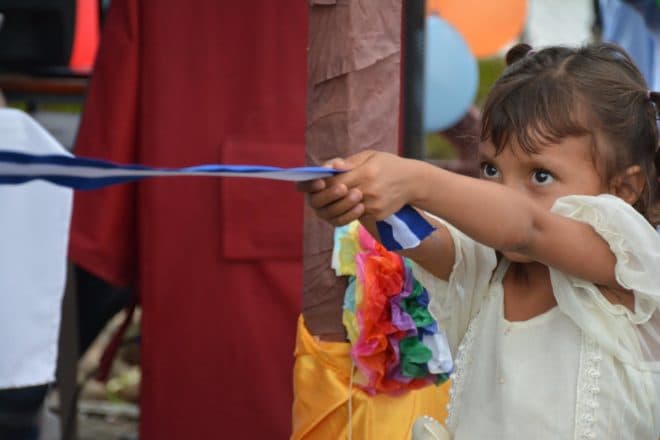
Empowered 100
By 2016, more than 15 communities had undergone a sustainable transition and it was time to systematically form a new five year strategic plan that focused on scaling this initiative. With the help of Mark Muckerheide from Target and a team of consultants, Global Brigades developed the Empowered 100 to formalize our processes, budgets and create a strategy for fundraising and partnership to help achieve one of the largest poverty alleviation initiatives in the world.
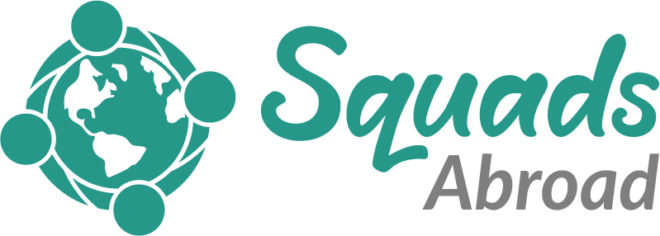
Squads Abroad
Squads Abroad became the new high school division of Global Brigades. Teacher-led groups enable us to engage volunteers earlier in their education process and inspire them into a longer-term involvement with our health and development work. The program quickly expanded to more than 30 participating school groups, mobilizing almost 500 volunteers in 2019. Squads Abroad also became a recognized partner of Key Club (Kiwanis International) and HOSA (Healthcare Occupations Student Association).
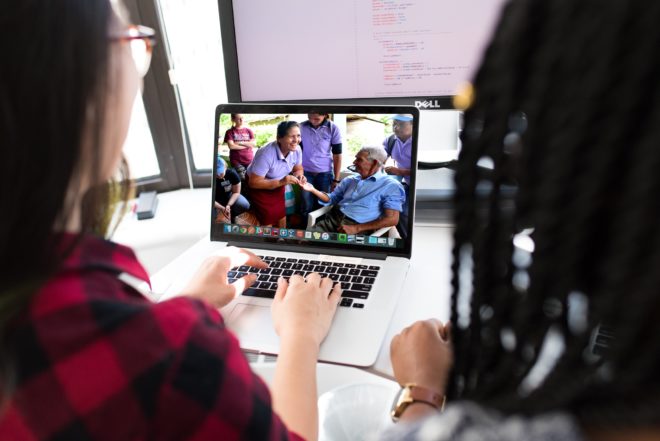
TeleBrigades
In the wake of online education due to the COVID-19 pandemic, many educators and students updated traditional methods of teaching and extra-curricular activities. Global TeleBrigades are the highest impact international sustainable development volunteer programs, which also happen to be completely virtual. TeleBrigades include everything our 80,000+ volunteers loved about our in-country programs but with less environmental impact from travel, a significantly reduced donation goal, and experience in international community service. TeleBrigades volunteers learn from and collaborate with full-time, local in-country teams and community members to carry out social impact projects like medical clinics, water systems, and community banks. In this way, volunteers achieve the same learning outcomes as volunteering abroad with GB teams in Ghana, Honduras, Guatemala, Nicaragua, Greece, and Panama. Using virtual meeting software and secure telemedical platforms, TeleBrigades volunteers have the opportunity to participate in select live consultations, interviews with physicians and economic development professionals, and real case studies in the fields of business, engineering, medicine, and public health.
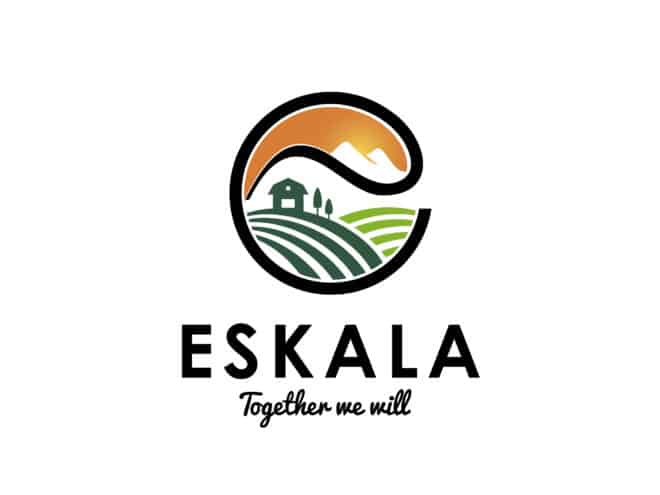
Eskala
After the World Bank named Global Brigades’ economic development initiatives the most effective for rural Panama, we knew there was an opportunity to scale those programs. In 2021, Eskala was born to do just that. Uniquely, Eskala blends microfinance and microequity to create and invest in community-owned banks in rural Central America. Its ambitious plans include managing a portfolio of 20,000 community-owned banks that will empower 18 million people living in poverty with financial services. After one year of planning and securing investments of more than $1M from its founding investors, Colleen O’Brien, Oisin O’Connor, Steve Nooyen, Jim Sartori, and Jim Stolberg, we are on our way!

